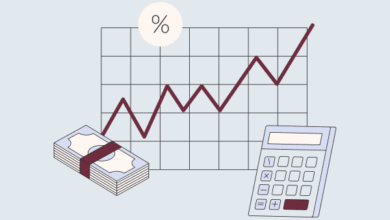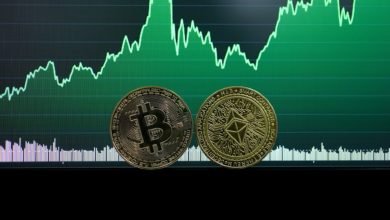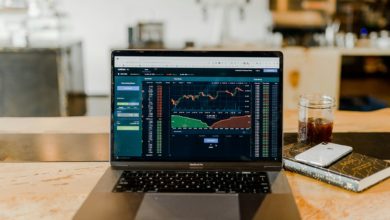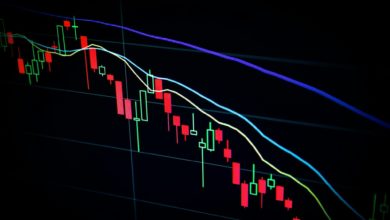Stock Market Today: S&P 500 and Nasdaq Edge Higher as Shutdown Looms

U.S. stocks traded mostly higher on Monday as investors weighed the growing odds of a government shutdown that could delay key economic data releases later this week. The S&P 500 rose 0.2%, while the Nasdaq Composite added nearly 0.5%, supported by strength in tech. The Dow Jones Industrial Average lagged, slipping 0.2%.
Markets opened higher but pared back earlier gains as traders braced for a potential halt to federal funding on Wednesday. With odds of a shutdown above 80%, attention is focused on a White House meeting between President Trump and congressional leaders that could be the last chance to avoid a funding lapse.
Market Movers:
- Merus (MRUS) surged 36% after reports emerged that Danish biotech Genmab is in talks to acquire the company. Merus’ cancer drug candidate, petosemtamab, showing strong trial results in combination with Keytruda, has made it a coveted takeover target. The stock has already delivered outsized gains this year on optimism around its pipeline.
- Pony.ai (PONY) jumped 12% after Dubai’s Roads and Transport Authority granted the company a permit to begin autonomous driving trials on public roads. The approval builds on earlier partnerships in China and positions Pony.ai to launch commercial driverless services as early as 2026.
- GSK (GSK) rose 2% following news that longtime CEO Emma Walmsley will step down at year’s end, to be replaced by Chief Commercial Officer Luke Miels. Investors welcomed the leadership change as the drugmaker prepares for what it called a pivotal 2026 to shape its long-term strategy.
- MoonLake Immunotherapeutics (MLTX) plummeted 89% after disappointing late-stage trial results for its hidradenitis suppurativa drug Sonelokimab. Analysts slashed price targets and downgraded the stock, citing uncertainty over the drug’s commercial future and regulatory path.
- Enanta Pharmaceuticals (ENTA) slipped 4% despite reporting promising Phase 2b results for its RSV antiviral candidate. While the data showed faster symptom resolution and reduced hospitalization rates, profit-taking appeared to outweigh the otherwise positive readout.
- Sony (SONY) dipped 2% after President Trump announced 100% tariffs on foreign-made films, pressuring Hollywood studios with significant international production. The move also weighed on peers, including Warner Bros. Discovery and Netflix.
Shutdown Risks Cloud Data Outlook
The main concern for markets is the fate of the Bureau of Labor Statistics, which confirmed it would suspend operations during a shutdown. That would delay the release of the nonfarm payrolls report scheduled for Friday, as well as upcoming inflation readings—key inputs for Federal Reserve policy decisions. Without timely data, investors face added uncertainty about the Fed’s pace of interest rate cuts heading into year-end.
The standoff in Washington reflects deep political divisions, with both parties digging in ahead of the Wednesday deadline. For markets, the risk isn’t just the shutdown itself but the loss of crucial transparency on the labor market and inflation at a time when Fed officials remain divided on how quickly to ease policy.
Economic Signals Sending Mixed Messages
Last week’s economic data painted a mixed picture. Jobless claims came in lower than expected while GDP growth was revised higher, fueling worries the Fed might slow its anticipated rate cuts. At the same time, regional surveys like the Dallas Fed index showed surprising weakness in manufacturing activity, raising concerns about cracks in the broader economy.
The divergence leaves investors leaning heavily on the jobs report for clarity. Forecasts point to modest payroll growth of 43,000 and an unemployment rate steady at 4.3%. If the shutdown prevents the report’s release, markets could see an uptick in volatility as traders are forced to operate without fresh data.
Trade Policy Adds Another Headwind
Adding to the uncertainty, President Trump expanded his tariff agenda on Monday by proposing new duties on movies and furniture. The move follows earlier announcements of tariffs set to take effect on Oct. 1. While investors have grown accustomed to periodic trade shocks, the breadth of products targeted underscores the administration’s willingness to escalate economic pressure ahead of the election cycle.
Tariffs could complicate consumer spending trends, which have remained resilient and supported corporate earnings. If extended, these trade measures risk further disrupting supply chains and raising costs just as inflation is beginning to stabilize.
Looking Ahead
Markets are set to close out September in positive territory, with the S&P 500 up 2.8% month-to-date and the Nasdaq higher by 2.9%. But with a government shutdown likely, investors face a critical test of confidence. The absence of fresh economic data would leave markets flying partially blind, forcing traders to rely on corporate earnings and global cues for direction. For now, optimism in tech and a resilient consumer keep sentiment buoyant, but the path forward hinges on Washington’s ability—or inability—to keep the government funded.




